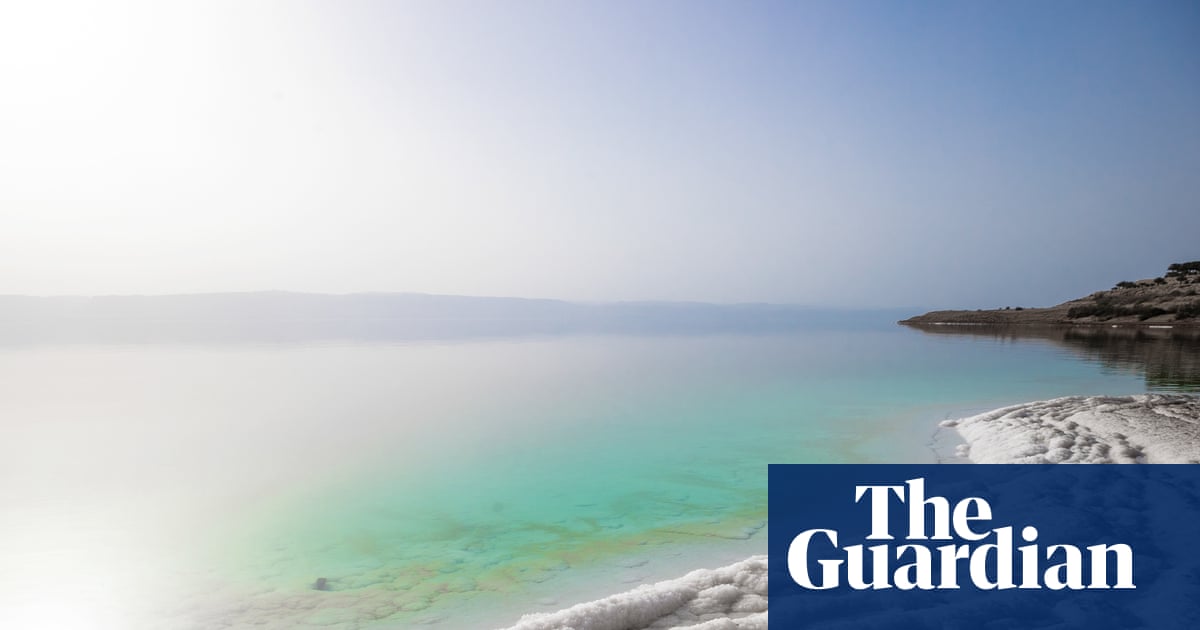On 20 October 2023, Hiba Abu Nada, a Palestinian poet and novelist, was killed by an Israeli airstrike on her home in Khan Younis, Gaza.
New Republic
1.
I grant you refuge
from hurt and suffering.
–Hiba Abu Nada
We lived in the second century
of world wars inside seas
I drowned with you
and we sank to the bottom
of the sea of salt
where drowning is not possible
2.
You were first created out of love,
so carry nothing but love.
–Hiba Abu Nada
We carried nothing
but each other, in the deep sand
we built another castle
share its floors and words
braided melancholy tunes
into unseen ceilings
3.
O! How alone we are!
–Hiba Abu Nada
You and I paint the shadows
we brought along
give them colors
hang them on the walls of water
to be washed off
in the third century.
In this week’s three-part poem, Michal Rubin mourns, and reimagines in a mysterious afterlife, the Palestinian author and activist, Hiba Abu Nada, who was killed in an Israeli airstrike on Gaza in 2023. The collection in which the poem appears was published in the spring of 2025 by Fomite Press, entitled “there are days that I am dead”. That bleak utterance (all words but “I” beginning in lower case on the book-jacket) reflects the acute pain of an Israeli writer experiencing the tension between her deep attachment to her country and its people, and her dismay at that country’s conduct in the war on Gaza.
In her short preface, Rubin captures the impressionistic spirit of her collection as a “jagged painting portraying my inner world since 7 October …” Some of these war-framed poems take the form of diary-like day-by-day meditations. Others, like New Republic, are engagements with Palestinian poets and poems, seeking a vulnerable but navigable bridge between divided loyalties. The Poem of the Week floats the possibility of a “New Republic” via the tentatively optimistic allegory of two poets meeting together in a dream to collaborate on the painting of a kind of magical water-mural.
As Rubin responds to three poems by Abu Nada (see below for sources and links), her emphasis is on finding direct, shareable language and emotion beyond “the second century / of world wars inside seas …” But a sea of sorrows must be entered by the two women before it becomes redemptive. In poem one of the trio, the two poets symbolise their respective countries, meeting to redefine their art together in “the sea of salt / where drowning is not possible”.
Tears are suggested, of course, as is the Dead Sea, a salt lake bordered by Jordan to the east and the Israeli-occupied West Bank and Israel to the west. Rubin imagines that she and Abu Nada “sank to the bottom”, both having differently experienced the trauma of their nations. In the current terms of that broken politics, they should have been enemies, but the second poem marks their transition, politically free and mutually supportive (“We carried nothing / but each other”) to an act of creative, ethical nation-making.
Rubin finds a powerful myth in Abu Nada’s line, “so carry nothing but love” and evokes more than children’s play when she claims that “in the deep sand // we built another castle …” The “castle” is a large and magical space for searching minds, rather than a sandcastle or fortress.
After having “braided melancholy tunes / into unseen ceilings”, Rubin declares the women’s still transitional accomplishment: “You and I painted the shadows / we brought along // gave them colors / hung them on the walls of water …” Individual consciousness merges as the two poet-artists find an expression of their separate acts of witness. The ultimate vision, though, is that such picture-making will one day no longer be needed, “washed off / in the third century”.
Rubin, whose grandparents were murdered in the Holocaust, lives in Columbia, South Carolina. Inspired by an alliance of peace-with-justice activists she met in Israel, she founded a group of Palestinian and American Jewish poets who regularly share work and ideas. Besides her poetry and peace commitments, she is a psychotherapist and cantor. Her most recent collection is And the Bones Stay Dry.
I am grateful to Somaia Abu Nada for permission to publish the quotations from her sister’s poems. She paid loving tribute to her in an open letter published in 2024. The quoted poems are translated into English by the Lebanese-American literary scholar Huda Fakhreddine. Each poem can be read in its entirety as follows: (1) I Grant You Refuge (2) Not Just Passing, and (3) Pull Yourself Together.
